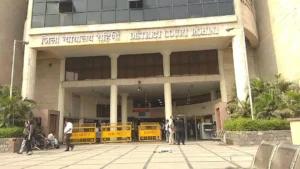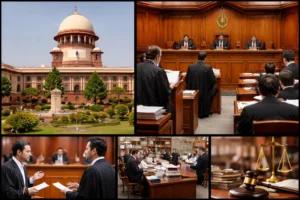The Kerala High Court on Tuesday delivered a significant order concerning the closure of a Capital Gain Savings Bank Account, where a 67-year-old widow had been battling the Income Tax Department for the release of her funds. Justice Ziyad Rahman A.A. made it clear that while the revenue has the right to secure tax dues, it cannot hold back the petitioner's entire savings indefinitely.
Background
The case arose from a writ petition filed by Mrs. Sainaba Hamza Koya, a senior citizen from Kochi. She had sold property gifted to her by her brother and, in compliance with tax law, deposited around ₹83 lakh into a special Capital Gain Savings Account in the State Bank of India.
Her plan was to construct a residential house at Edappally, which she eventually did, but instead of drawing from the account, she borrowed money from her daughter and son-in-law. Later, she sought to withdraw her deposits to repay the loans.
When she approached the Income Tax Officer (ITO) for permission to close the account, her request was turned down. The department said she had not filed returns for the relevant year, had not used the deposited money within the mandatory three-year window, and that the house construction itself had not been completed in time. The tax liability was calculated at ₹16.2 lakh approximately, covering two assessment years.
Read also:- President Appoints Justices N. Senthilkumar and G. Arul Murugan as Judges of Madras High Court
Court's Observations
Justice Rahman carefully went through the statutory provision Section 54F of the Income Tax Act, 1961 which allows exemption from capital gains tax if the money from a property sale is used to build or buy a house within a certain period.
The petitioner argued that the law does not insist the house must be constructed only with the sale proceeds; borrowed funds can also be used, as long as the capital gains are later appropriated.
"Section 54F does not prohibit such an exercise," the bench noted, agreeing that in principle, borrowed funds may be used first.
Read also:- Delhi High Court sets aside CAT order granting notional promotion to retired GSI officer
However, the judge also pointed out a practical limitation:
"Mere claim of the petitioner by itself is not sufficient, but what is relevant is the satisfaction of the authority that the petitioner had indeed utilised the funds… for the purposes referred in Section 54F."
The Court observed that the tax officer had gone beyond his brief by treating the closure request as if it were a full-fledged assessment proceeding. Yet, his refusal to permit closure was not entirely without basis. The findings in the Income Tax Officer's order, the Court said, must be treated as prima facie - preliminary - not final. Final determination of tax liability can only happen in proper assessment proceedings.
The Decision
Balancing both sides, the High Court declined to quash the ITO’s communication outright. At the same time, it ruled that the petitioner cannot be made to wait indefinitely for her own money.
Justice Rahman directed that the petitioner be allowed to withdraw the excess amount in her Capital Gain Savings Account after retaining enough to cover the tax dues as calculated by the department. The officer must pass necessary orders within one month.
The Court clarified that the findings against the petitioner are only tentative and subject to proper assessment. If no proceedings are initiated within a reasonable time, Mrs. Koya can seek release of the retained funds under law.
With that, the writ petition was disposed of, giving partial relief to the elderly petitioner who had been struggling for years to access her money.
Case Title: Mrs. Sainaba Hamza Koya v. The Income Tax Officer & State Bank of India
Case Number: WP(C) No. 40744 of 2024














